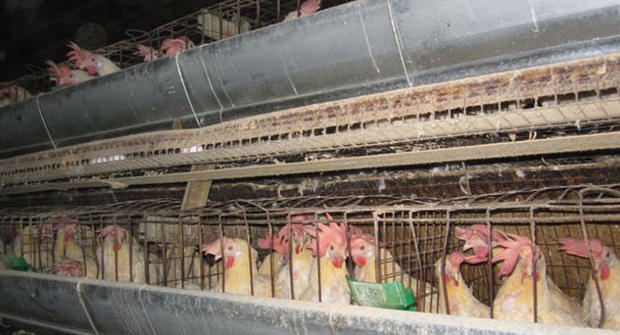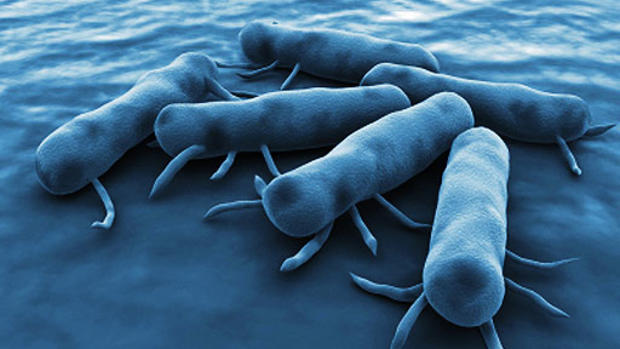Recalled Eggs List: Blame Factory Farms for Salmonella Outbreak?
(CBS) In the midst of the largest salmonella scare we've seen in years, people are staying away from Caesar salad and examining their egg cartons for suspicious numbers and dates. At the same time, they're wondering whom to blame.
Many are pointing fingers at Wright County Egg. The egg producer in Galt, Iowa, whose owner has had repeated run-ins with government regulators over violations at his food companies, is taking heat, the New York Times reported.
Yet researchers say our salmonella problem is systemic.
PICTURES: 9 Signs of Salmonella Poisoning
Dr. Marion Nestle of the department of nutrition, food studies, and public health at New York University, and the author of "Food Politics" and "What to Eat", is a member of the Pew Commission on Industrial Farm Animal Production. She toured several factory farms last year.
"It's hard to explain unless you actually see one of these places," she tells CBS News. "Try to imagine an enormous warehouse, as long as two or more city blocks, packed with hundreds of thousands of chickens. And that's 'free range.' Otherwise they are caged six to nine in a cage. If one gets sick, they all get sick."
Federal officials say the current outbreak is likely to grow. That's because illnesses occurring after mid-July may not be reported yet, says Dr. Christopher Braden, an epidemiologist with the Centers for Disease Control and Prevention.
This egg disaster goes hand-in-hand with industrial food production, some experts insist.
Years ago, communities would get eggs from nearby farms, so any outbreaks would be geographically localized, says Dr. William Schaffner, chairman of the department of preventive medicine at Vanderbilt University in Nashville, Tenn. Today, if there is a problem in some early stage in the distribution chain, it spreads quickly over a very large geographic area and involves a very large number of people, he says.
Is it the price we pay for a cheap breakfast? Not all experts agree.
"Yeah, when there are more birds, there will be more problems," says Jeff Armstrong, dean of the College of Agriculture and Natural Resources at Michigan State University, "but there is no clear data on whether one system of housing birds is more or less likely to encourage disease. The bottom line is that we can and have been producing eggs safely and economically in confinement.This unfortunate problem is not an indictment of the system."
With thousands of people feared sickened, it seems that the arguments are destined to continue.
As for Nestle, she shops for eggs at her local farmer's market. They cost more, but she says she knows how they are produced.
"We have very cheap food in this country. It's hard to argue against it, and I won't," says Nestle. "We have made cheap food a value rather than value good food."

